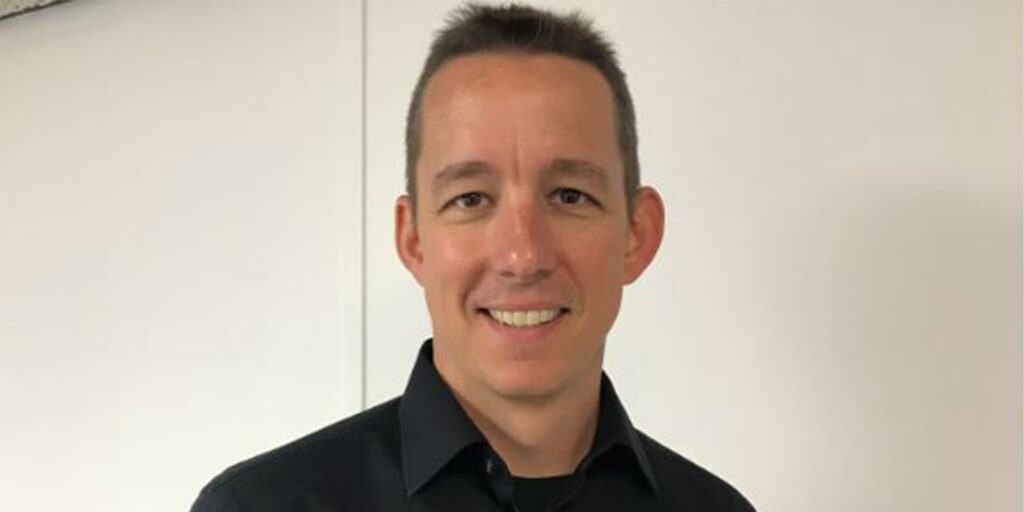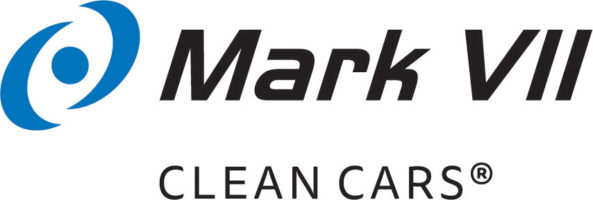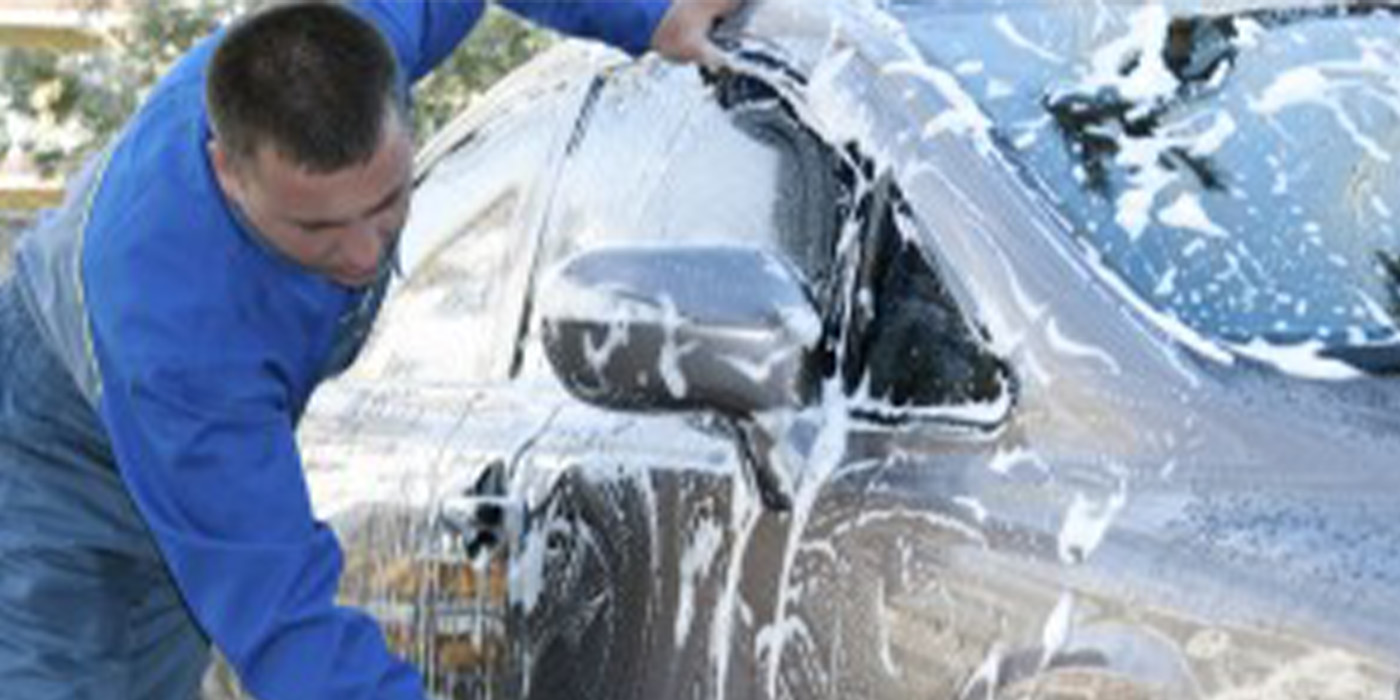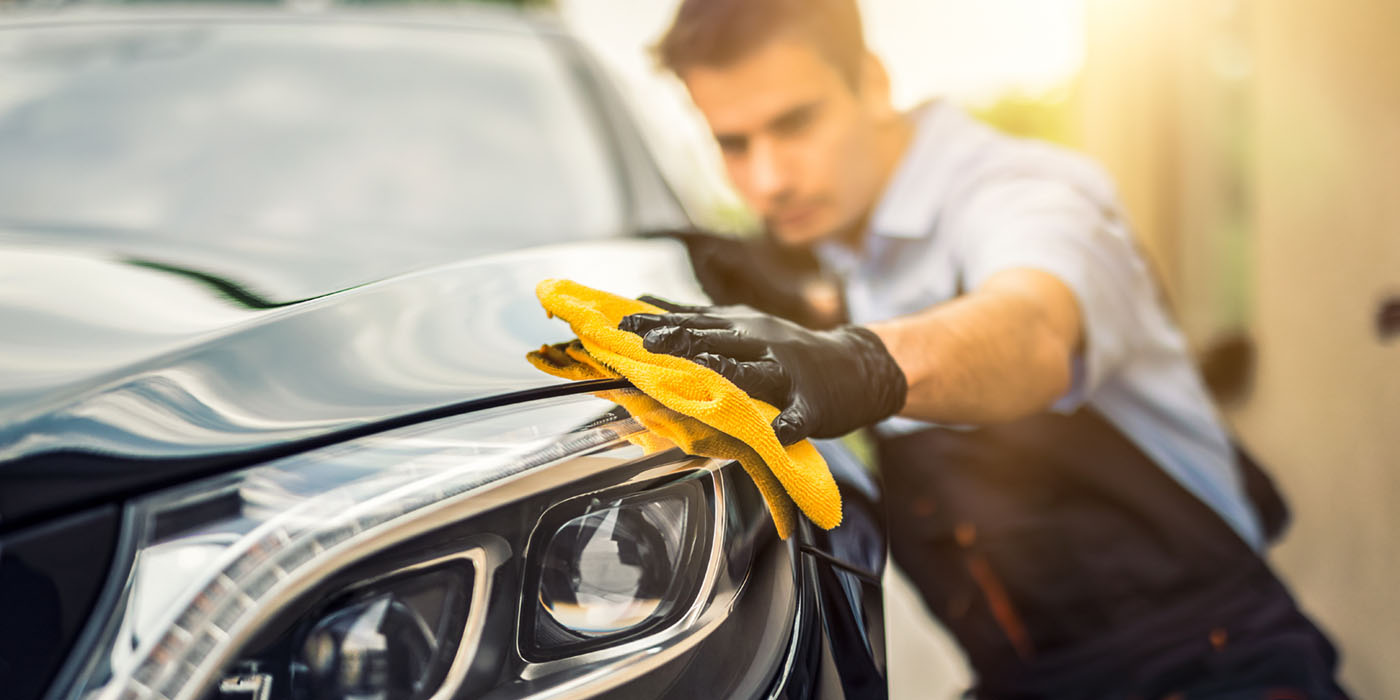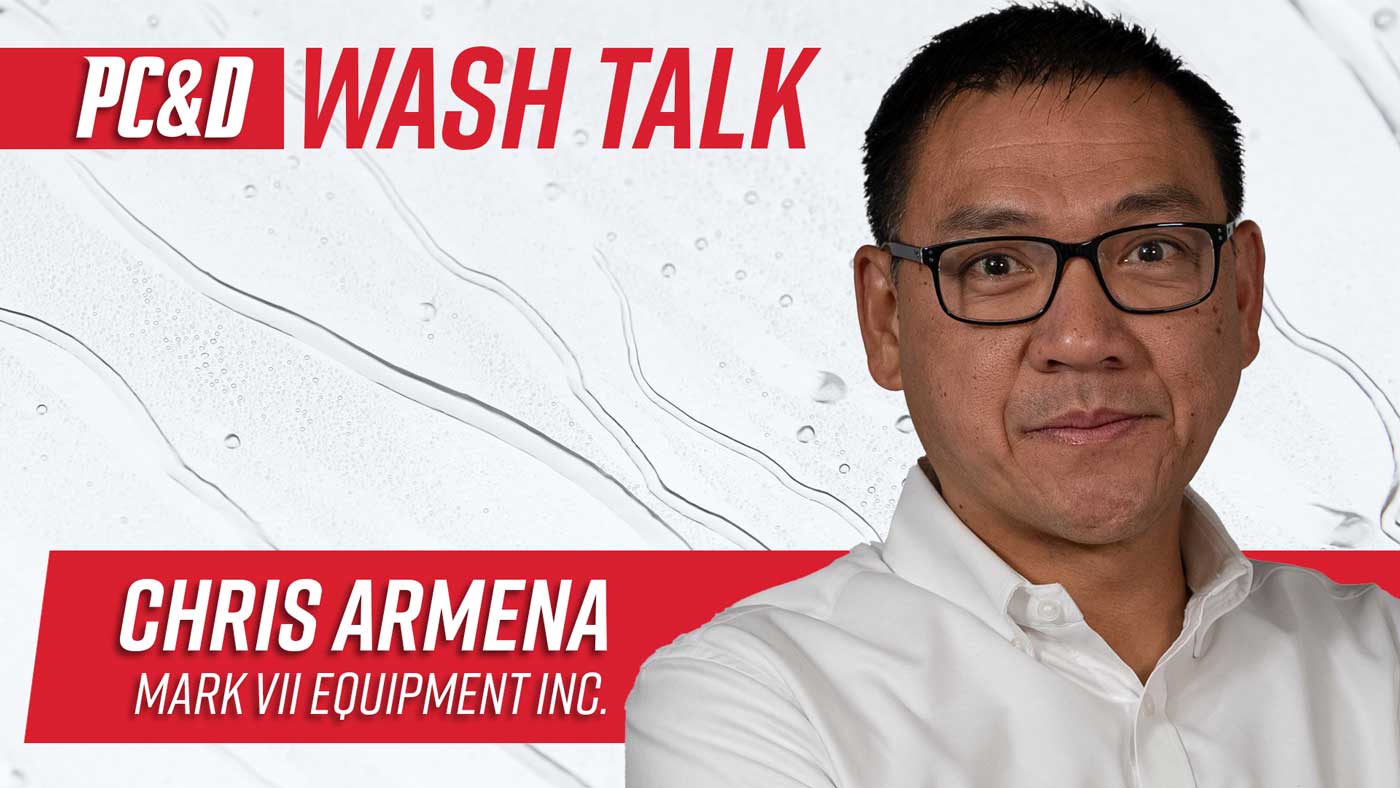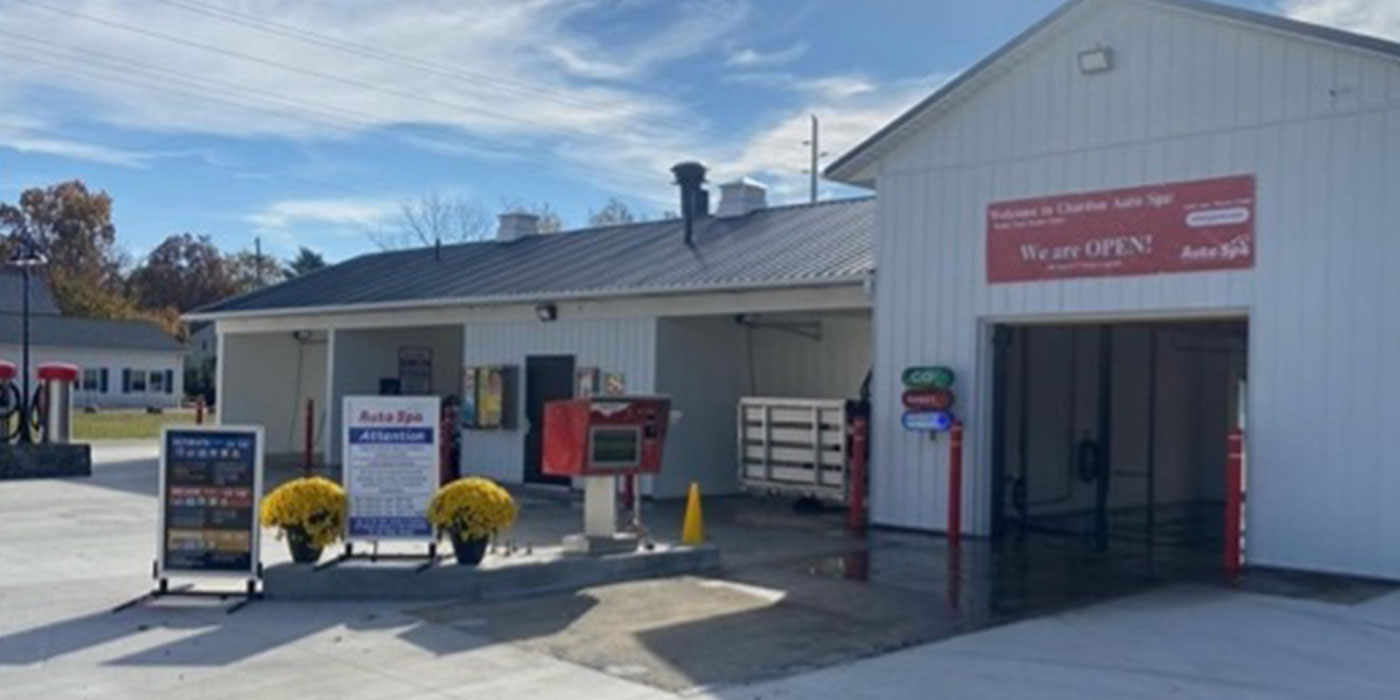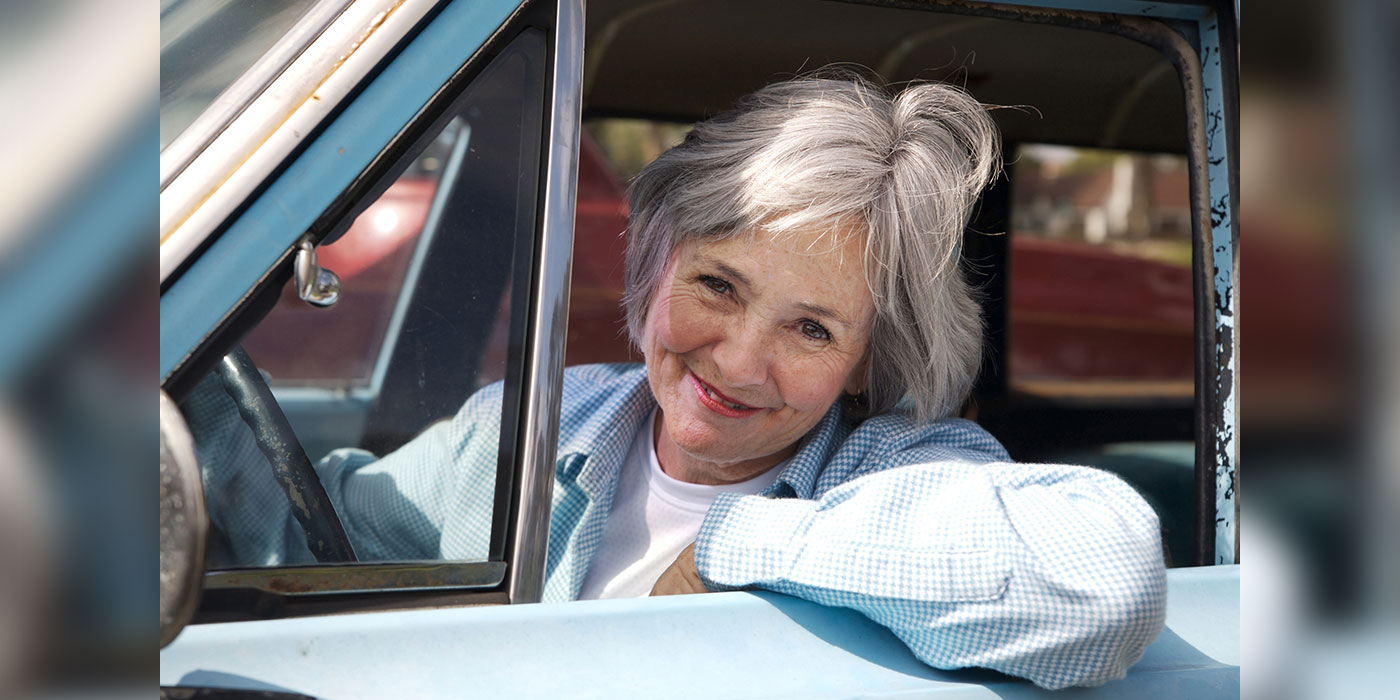Sometimes a job is just a way to pay the bills, but sometimes it’s a turning point in a person’s life. When Ray Rook joined Mark VII in 1995, he had no idea of how much this entry-level job would shape his future.
“I was interested in machinery and knew my friend Travis liked working [at Mark VII,]” said Rook, who was familiar with carwashing from washing his neighbor’s vehicles as a kid to earn money.
Rook’s friend passed his name along to Bob Ulrich, a manager at Mark VII. “Bob told me he’d give me a chance, only because Travis recommended me,” Rook said. “Bob added that if I failed, he’d have to fire both of us. I took that as a challenge.”
Rook landed a job in the metal shop at Mark VII. He was a “button pusher,” working the second shift from 4 p.m. to 10 p.m. Within his first six months on the job, he was promoted to the machine shop, where he began learning how to program the CNC machine. “I would take information home at night and study it to learn more about the machine,” Rook recalled. “It was fascinating to me to see that big machine follow the code I’d written.”
Rook’s career continued to evolve at Mark VII until 2008, when a weak global economy triggered layoffs. “That was a tough time to find a job,” said Rook, who took a huge pay cut in the first three months of his layoff when he began working for one of Mark VII’s installers. Rook then became a process engineer for a job shop.
Within a year of the layoff, Bob Ulrich had the opportunity to hire Rook again. “I came back to Mark VII with a humbled approach and a new role,” Rook said.
Before the layoff, Rook had been an assembly manager with many people reporting to him. When he was hired back at Mark VII, his job focused on reverse-engineering equipment and solving problems. “That’s still a big part of what I do today,” explained Rook.
Reflecting on his success in the industry, Rook shared the following five business lessons he has learned throughout his long career with Mark VII.
- Start low and grow. Don’t think an entry-level job at a company like Mark VII can’t lead to big opportunities. The key is to work hard, learn all you can and be willing to take on more responsibility. “It’s definitely possible to work your way up in this company,” said Rook, whose role has evolved from a laborer to a commodity manager in purchasing to vice president of supply chain. “I have managers on my team who started their careers the same way I did.”
- Give more than you get. When Rook was early in his career with Mark VII, one of his jobs involved de-burring to remove sharp edges from metal parts. Rook’s goal was to do the work as accurately and efficiently as possible. “I’d set stop watches to time myself. Even though no one else knew I was doing this, I wanted to keep improving … going the extra mile is rewarded at Mark VII,” Rook added. “When you give more than you get, you gain opportunities you weren’t even pursuing.”
- Adapt to changing times. Technology in the carwash business has changed dramatically during Rook’s career. While equipment in the 1990s relied on switches to turn machines on or off and open or close valves, computer sensors guide modern carwash equipment. There’s also a bigger focus on energy efficiency and eco-friendly solutions.1 “This industry has become more competitive today than when I started in the business,” Rook reflected. “You have to adapt and find new solutions to provide clean, shiny vehicles for customers.”
- Understand that feedback is a gift. Rook was halfway through his career when his work expanded into business strategy. After the company went global in 2006, this opened up new avenues for Rook to help Mark VII grow internationally. He credits current and former colleagues like Bob Ulrich for mentoring him. “There are a lot of characteristics that make a person successful,” Rook said. “Many of these skills can be learned. As you expand your skills, remember that feedback is a gift.”
- Keep learning and sharing. Working in a variety of Mark VII departments through the years has helped Rook learn a great deal about the car wash industry. “We often learn more from our failures than our successes,” Rook noted. “I’m grateful I’ve had the opportunity to learn the business from some great people. I want to help other people learn, too.”
This is important as Mark VII develops its tunnel carwash division.2 Mark VII’s culture of recruiting and retaining top talent supports this growth, according to Rook, who added that a number of fathers, sons, husbands and wives work at Mark VII. It’s not uncommon for strong friendships to flourish at the company, as well. “This place is like family,” said Rook, who prepares a BBQ lunch once a month throughout the summer for his team. “We’re building on a strong foundation as we grow for the future.”
Sources:
1 https://www.markvii.net/blog/tips-for-owners/seeking-a-greener-carwash-experience
2 https://www.markvii.net/tunnel-systems
Ray Rook began working at Mark VII Equipment in 1995 as a “button pusher,” and has since accelerated his career to becoming VP of supply chain, a role in which he manages over 50 employees.

